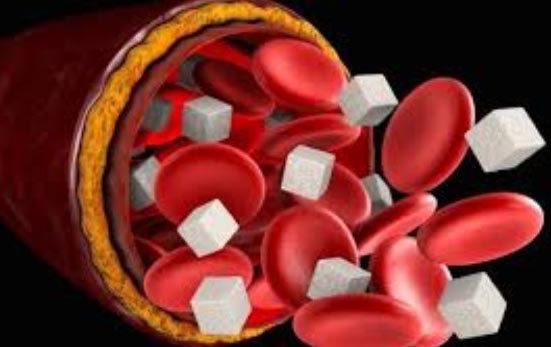Nikhil Prasad Fact checked by:Thailand Medical News Team Jul 18, 2024 9 months, 1 week, 1 day, 2 hours, 49 minutes ago
Diabetes News: A Deeper Dive into Diabetes Complications: How High Glucose Levels Impact Immune Cells
Researchers from the University of Turku in Finland, Ruprecht-Karls-University of Heidelberg in Germany, and the Academy of Scientific Research & Technology in Egypt have made significant strides in understanding how high glucose levels, typical in diabetes, affect human macrophages. This
Diabetes News report delves into their groundbreaking findings and what it could mean for diabetes patients.
 High Glucose Levels Trigger Atherogenic Pathways in Human Macrophages
High Glucose Levels Trigger Atherogenic Pathways in Human Macrophages
The Role of Macrophages in Diabetes
Diabetes mellitus is a chronic disease affecting over 500 million people globally. It's characterized by high blood sugar levels and can lead to severe complications like heart disease and stroke. Understanding how these complications arise is crucial, and that's where macrophages come into play. Macrophages are immune cells that help regulate immune responses and tissue homeostasis. However, in diabetes, their function can become dysregulated, leading to inflammation and atherosclerosis (plaque build-up in arteries).
High Glucose and Macrophage Activity
The researchers focused on how high glucose levels influence the activity of macrophages. They discovered that macrophages grown in high-glucose environments showed increased lactate production and phosphofructokinase (PFK) enzyme activity. This indicates that high glucose causes metabolic changes in macrophages, pushing them towards a more active, inflammatory state.
Key Findings: TGFβ1 and Atherogenic Pathways
The study highlighted the role of transforming growth factor beta 1 (TGFβ1), a cytokine involved in cell proliferation and differentiation. In high-glucose conditions, macrophages showed increased expression of TGFβ1 and its associated genes, HAMP and PLAUR. TGFβ1 typically binds to receptors on cell surfaces, leading to the activation of Smad proteins that regulate gene expression.
Interestingly, the phosphorylation (activation) of Smad1/5 proteins was only observed in high-glucose conditions, suggesting that high glucose specifically activates the TGFβ1-Smad1/5 pathway. This pathway is known to contribute to atherosclerosis by promoting the expression of genes involved in iron retention (HAMP) and inflammation (PLAUR).
The Experiment: Culturing Macrophages
The researchers cultured human primary macrophages in normal and high-glucose conditions to observe the differences. They used advanced techniques to measure lactate concentration, PFK activity, and the expression of specific genes and proteins. Their findings confirmed that high glucose environments lead to significant changes in macrophage behavior, pushing them towards a state that promotes atherosclerosis.
Inhibiting the Atherogenic Pathway
To further understand this pathway,
the researchers used specific inhibitors to block parts of the TGFβ1 signaling pathway. They found that inhibiting the ALK1/2 receptor blocked the phosphorylation of Smad1/5, while inhibiting the ALK5 receptor blocked Smad2 phosphorylation. This indicates that both receptors are involved in TGFβ1 signaling but have different roles.
Implications for Diabetes Patients
These findings have important implications for diabetes patients. High glucose levels, typical in diabetes, can push macrophages into an inflammatory state, promoting atherosclerosis. By understanding the specific pathways involved, researchers can develop targeted therapies to block these harmful effects. For instance, drugs that inhibit the ALK1/2 receptor could potentially reduce the risk of atherosclerosis in diabetes patients.
Conclusion: A Step Forward in Diabetes Research
This research provides valuable insights into how high glucose levels affect immune cells and contribute to diabetes complications. By targeting specific pathways, new treatments can be developed to mitigate these effects, improving the lives of millions of diabetes patients.
The study findings were published in the peer-reviewed journal: Biomedicines.
https://www.mdpi.com/2227-9059/12/7/1575
For the latest
Diabetes News, keep on logging to Thailand Medical News.
Read Also:
https://www.thailandmedical.news/news/thailand-medical-researchers-discover-phytochemicals-from-orchid-roots-that-can-be-used-to-fight-diabetes
https://www.thailandmedical.news/news/cutting-edge-natural-antidiabetic-compounds-morpholine-piperazine-and-piperidine
